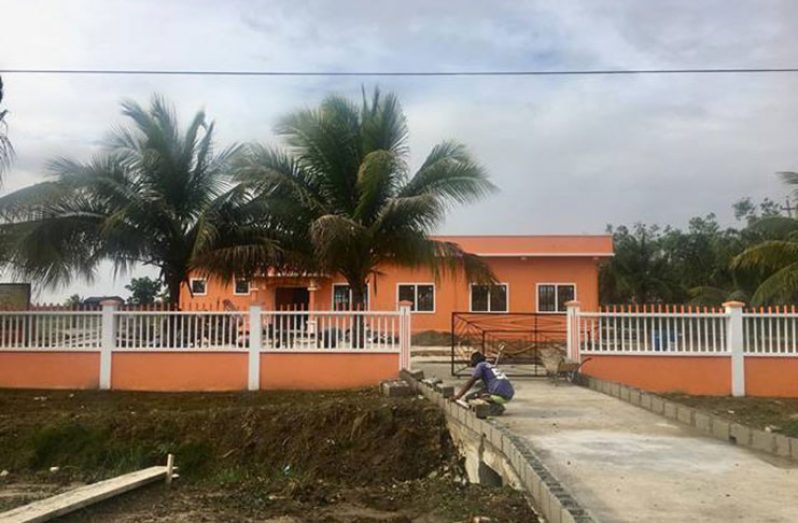CONSTRUCTION of the $40M Nand Persaud soil-testing laboratory at the University of Guyana’s Berbice Campus (John’s Science Centre) compound is 97 per cent completed, and will officially commence testing in early July.
The opening of such a laboratory, the construction of which is being funded by the Nand Persaud Group of Companies, is expected to drastically change the landscape of farming in the region by providing soil and disease testing for farmers. Staffing for the facility is expected to be sourced from within the said Berbice.
Company Chief Executive Officer (CEO), Mohindra Persaud, said all the major works have been completed, with the exception of the fencing. He noted that the facility is presently undergoing the final touches to accommodate the furniture and equipment.
Persaud told the Department of Public Information (DPI) that the facility would have been ready for opening in another week, except that the chemicals needed for the testing, which are being sourced from Trinidad, have not yet arrived in the country.
He expressed excitement for the facility to be up and running, since he has been doing research over the past few years on the benefits the facility is expected to bring the farmers, and hopes that it truly transforms the way farming is done here in Guyana.
“Most farmers,” he said, “have been doing farming based on traditional methods that were handed down from their foreparents, and often when you try to get them to adopt to new methods, they would say their grandfather has been doing that for years and it worked for him, so why should they change?”

The facility will now help to make that change, by providing scientific information on the efficiency and deficiency of the soil, so they can know how to proceed, Persaud said.
Coming from a family of farmers before getting into rice milling and eventually branching off into almost every industry, Persaud is a farmer at heart, and strongly believes that Guyana, given its abundance of freshwater and flat lands, should be the world’s leader in agriculture, hence the decision to invest in the much-needed facility.
“From what we have found, about 30 per cent of the fertilisers applied is being wasted. This facility will allow for scientific and precise reports on what is needed. If you look across the world, farmers are getting better yields than us, despite less favourable conditions. We are hoping this facility changes that,” the young businessman said, adding:
“It will not only help to tell us why we have poor yields, but we can compare with fields that have good yields, and look to replicate across-the-board.”
Persaud posited that within 18 months, farmers will be able to move their average yield per acre of rice to 45 bags, as opposed to the current average of 37, ultimately helping them to get value for their investment. The construction of the laboratory is a collaborative effort of the Nand Persaud Group of Companies and the University of Guyana. (DPI)












